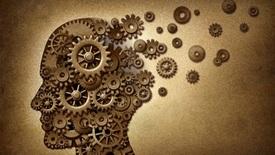Weight lifting calorie burn

britneyy32
Posts: 97 Member
Do you guys log weight lifting calories? I normally use my HRM when I lift but I just recently discovered that HRM aren't accurate for lifting. So do you guys log a rough estimate of calories you burn through weight lifting or completely disregard the calories you burn?
0
Replies
-
Nope I add them in. Quick question how are they 'not accurate'?0
-
Well, from what I read, heart rate monitors are only accurate for cardiovascular activity, not weight lifting. Here's an article that discusses why.. http://livehealthy.chron.com/can-heart-rate-monitors-measure-calories-weight-lifting-4910.html0
-
Yup, they arent very accurate for calorie burning while weightlifting. The MFP "strength training" does well for me, underestimates, but for you you might want to put in only 2/3 of your time or so to log (your burn will depend on the weight you are pushing, guys tend to push significantly more than girls).0
-
I find that kinda weird, I mean everything we do is 'cardio' activity and everything we do burns calories.. I already know its probably not 100% accurate, nothing ever is but personally I don't feel that's a reason to discredit it
 Feels like this plays along the lines of 'cardio only for weight loss' which I am SO not down for haha. 0
Feels like this plays along the lines of 'cardio only for weight loss' which I am SO not down for haha. 0 -
I find that kinda weird, I mean everything we do is 'cardio' activity and everything we do burns calories.. I already know its probably not 100% accurate, nothing ever is but personally I don't feel that's a reason to discredit it
 Feels like this plays along the lines of 'cardio only for weight loss' which I am SO not down for haha.
Feels like this plays along the lines of 'cardio only for weight loss' which I am SO not down for haha.
Hrm? Why cardio only for weightloss? No not at all, just HRM isn't so accurate for most people, its not a big deal, in fact I semi-regularly find issues and have to adjust burn rates for things. Weights are great for weightloss, and most of the effect is post workout: increased metabolic burn rate for hours in the rest of the day, musclebuilding takes energy and muscle just sitting there burns more calories after its built. 0
0 -
I find that kinda weird, I mean everything we do is 'cardio' activity and everything we do burns calories.. I already know its probably not 100% accurate, nothing ever is but personally I don't feel that's a reason to discredit it
 Feels like this plays along the lines of 'cardio only for weight loss' which I am SO not down for haha.
Feels like this plays along the lines of 'cardio only for weight loss' which I am SO not down for haha.
It can be pretty off for weight lifting. The algorithms used are based on heart rate as a predictor of actual activity. When you lift, your heart rate goes up by a greater amount than the activity as compared to cardio - hence leading to some potentially significant over-estimations.
OP: a good rule of thumb, and being relatively conservative is 200 - 300 calories an hour, depending on intensity and your size.0 -
Its hard to track weight lifting calories, really. Mostly because youll burn calories while lifting, but your body continues to burn calories to repair your muscles as well.0
-
Ah put like that it makes excellent sense. My HR isnt that far off, but always felt like i was lagging behind and like it should have been more calorie burnt. Thanks for posting this OP! x0
-
I find that kinda weird, I mean everything we do is 'cardio' activity and everything we do burns calories.. I already know its probably not 100% accurate, nothing ever is but personally I don't feel that's a reason to discredit it
 Feels like this plays along the lines of 'cardio only for weight loss' which I am SO not down for haha.
Feels like this plays along the lines of 'cardio only for weight loss' which I am SO not down for haha.
It can be pretty off for weight lifting. The algorithms used are based on heart rate as a predictor of actual activity. When you lift, your heart rate goes up by a greater amount than the activity as compared to cardio - hence leading to some potentially significant over-estimations.
OP: a good rule of thumb, and being relatively conservative is 200 - 300 calories an hour, depending on intensity and your size.
I pick a number and log it.
I usually log 250cals for an hour.0 -
I log 200 cals an hour for lifting, minus the BMR for the hour (otherwise MFP counts that burn twice).0
-
I use MFP for calorie tracking and Fitocracy to track workouts. Calculating calories burned for heavy lifting is nearly impossible to do because you burn relatively little while actually working out, but the afterburn continues for far longer (days sometimes) than with cardio. Plus the added muscle mass increases your resting metabolism.0
-
This content has been removed.
-
I don't track calories burned for weight lifting.. I just eat the same amount calories regardless. I track in the strength my stats for the exercises (for me just to see progress lol).
I figure it will all balance out in the end 0
0 -
I use MFP strength training for when I am doing using the weight machines!
Best of luclk,
Joanna0 -
I use the MFP "strenght training". I normally only eat 1/2 my calories back anyway.0
-
I don't have a HRM so don't have to worry about its accuracy for lifting burn estimates. Like a couple other posters I simply use the MFP estimate. My rate of loss is pretty close to expected so that's good enough for me for now.0
-
I used to use the MFP Strength estimate, but have lately just stopped logging my weight lifting. I know that there is some calorie burn, but it's not really significant. I use that as a "buffer" on my lifting days. Cardio I log, of course.0
-
I find that kinda weird, I mean everything we do is 'cardio' activity and everything we do burns calories.. I already know its probably not 100% accurate, nothing ever is but personally I don't feel that's a reason to discredit it
 Feels like this plays along the lines of 'cardio only for weight loss' which I am SO not down for haha.
Feels like this plays along the lines of 'cardio only for weight loss' which I am SO not down for haha.
It can be pretty off for weight lifting. The algorithms used are based on heart rate as a predictor of actual activity. When you lift, your heart rate goes up by a greater amount than the activity as compared to cardio - hence leading to some potentially significant over-estimations.
OP: a good rule of thumb, and being relatively conservative is 200 - 300 calories an hour, depending on intensity and your size.
This is interesting, because I have just been using the HRM to track calories burned during lifting. I probably should cut it in half, because I am getting over 200 calories per half hour.0 -
At least in half.I find that kinda weird, I mean everything we do is 'cardio' activity and everything we do burns calories.. I already know its probably not 100% accurate, nothing ever is but personally I don't feel that's a reason to discredit it Feels like this plays along the lines of 'cardio only for weight loss' which I am SO not down for haha.
Feels like this plays along the lines of 'cardio only for weight loss' which I am SO not down for haha.
It can be pretty off for weight lifting. The algorithms used are based on heart rate as a predictor of actual activity. When you lift, your heart rate goes up by a greater amount than the activity as compared to cardio - hence leading to some potentially significant over-estimations.
OP: a good rule of thumb, and being relatively conservative is 200 - 300 calories an hour, depending on intensity and your size.
This is interesting, because I have just been using the HRM to track calories burned during lifting. I probably should cut it in half, because I am getting over 200 calories per half hour.0 -
This content has been removed.
-
Do you guys log weight lifting calories? I normally use my HRM when I lift but I just recently discovered that HRM aren't accurate for lifting. So do you guys log a rough estimate of calories you burn through weight lifting or completely disregard the calories you burn?
You don't burn through as many calories lifting as you'd probably think, especially on heavier lifting where your reps are between 4-10.0 -
I find that kinda weird, I mean everything we do is 'cardio' activity and everything we do burns calories.. I already know its probably not 100% accurate, nothing ever is but personally I don't feel that's a reason to discredit it
 Feels like this plays along the lines of 'cardio only for weight loss' which I am SO not down for haha.
Feels like this plays along the lines of 'cardio only for weight loss' which I am SO not down for haha.
It can be pretty off for weight lifting. The algorithms used are based on heart rate as a predictor of actual activity. When you lift, your heart rate goes up by a greater amount than the activity as compared to cardio - hence leading to some potentially significant over-estimations.
OP: a good rule of thumb, and being relatively conservative is 200 - 300 calories an hour, depending on intensity and your size.
This is interesting, because I have just been using the HRM to track calories burned during lifting. I probably should cut it in half, because I am getting over 200 calories per half hour.
Just don't use it. There is absolutely no point. It is not designed for that. you're blowing its mind by doing that. The algorithms are set for steady-state cardio only.
The difference is that when doing most types of cardio, you body is buring through body stores, one of them being carbohydrates so your literally burning calories. When your lifting, sure you burn some carbs etc but a good portion of the energy you use is from ATP. Meaning, you don't burn as many calories lifting as you'd think or as most calculators would suggest.0 -
I do. I also log the calories I burn when I take a ****.0
This discussion has been closed.
Categories
- All Categories
- 1.4M Health, Wellness and Goals
- 398.2K Introduce Yourself
- 44.7K Getting Started
- 261K Health and Weight Loss
- 176.4K Food and Nutrition
- 47.7K Recipes
- 233K Fitness and Exercise
- 462 Sleep, Mindfulness and Overall Wellness
- 6.5K Goal: Maintaining Weight
- 8.7K Goal: Gaining Weight and Body Building
- 153.5K Motivation and Support
- 8.4K Challenges
- 1.4K Debate Club
- 96.5K Chit-Chat
- 2.6K Fun and Games
- 4.7K MyFitnessPal Information
- 17 News and Announcements
- 21 MyFitnessPal Academy
- 1.5K Feature Suggestions and Ideas
- 3.2K MyFitnessPal Tech Support Questions














